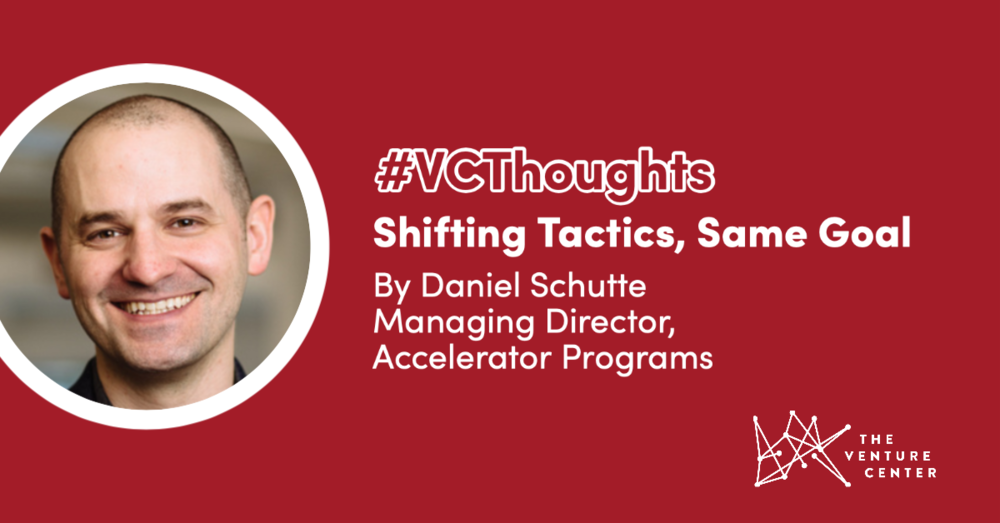
By Daniel Schutte
Managing Director
Accelerator Programs
There’s a story that I’ve encountered in design thinking circles lately that might be an excellent place to start this post.
Several years ago, a semi-truck operator was trying to drive beneath an overpass and incorrectly judged the height. As a result, the truck got wedged between the overpass and the road so firmly that the driver was unable to dislodge the truck by driving forward or backward.
In this busy thoroughfare traffic quickly piled up, and it wasn’t long before a crowd of first responders and rubberneckers gathered around to figure out how to get the truck out.
The crowd considered removing pieces of the truck or chipping away at the bridge itself, with each person contributing ideas according to their area of expertise.
Then, a child walks by and asks, “Why don’t they let the air out of the tires?”
The whole crowd stops and stares in amazement at the child before they proceed to test the solution. Once the air is out of the tires, the truck is free and drives away no worse for wear (sans the damage from the initial crash).
The moral of the story is that we often fail to see the most elegant solutions because of our existing beliefs.
For several decades the prevailing wisdom in business has been to develop expertise in a particular area and to know more about it than the rest of the world so you can provide the most value. Many of us did just that in hopes of becoming irreplaceable.
There is no real problem with this line of thinking, expertise is still precious, and rare skill sets are still limited and thus valuable. However, it does mean that we can all fall prey to the inherent pitfalls of expertise. If you have been operating a business for years (or decades) and have honed your operations and procedures over time, then you are at genuine risk of not being able to see another (better) way to do things.
I often see people confuse their business tactics with the actual goal/value generation of the company. They are not the same thing. We should never confuse the methodology with the goal. In business, the goal is the value you generate for your clients, and the way you do it is generally insignificant. You’ve likely built your business to suit the environment when you created it, but many of those tactics could be irrelevant today.
To thrive in a time of uncertainty, we need to get cool with ambiguity. We need to become more like the child in the story about the semi. There are billion-dollar businesses to be created as a result of new ways of doing business in times of Covid-19.
It’s time to go back to square one, which is difficult for many to do, but necessary. Our environment has changed, and the ways many of us create value are likely now defunct. The value is not, just the method. Square one is to empathize with your users, get into their shoes, and understand their new pains. You can’t solve yesterday’s problems, so you have to address the issues of today. People will still pay for it.
